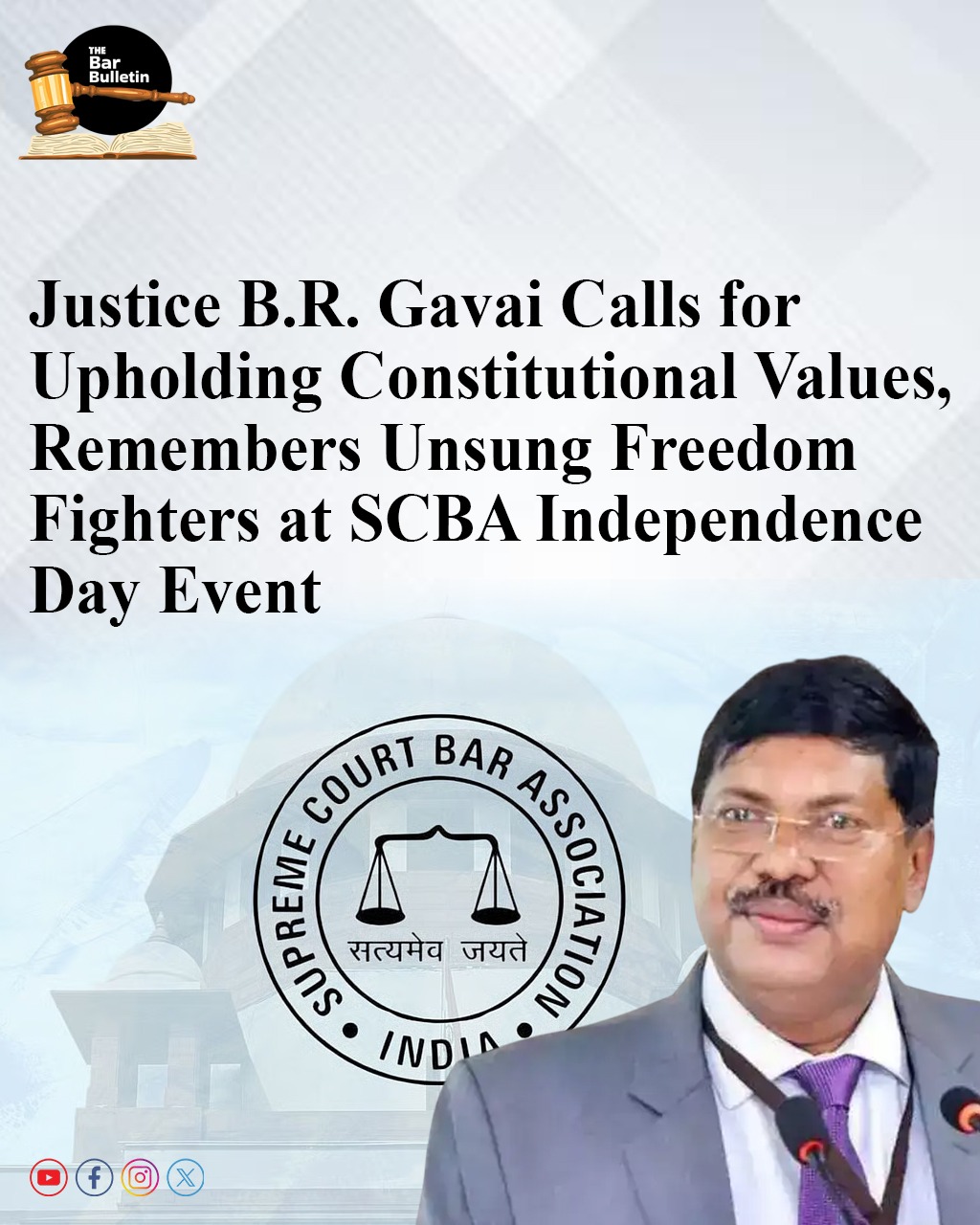On the occasion of India’s 79th Independence Day, Justice B.R. Gavai addressed the Supreme Court Bar Association (SCBA) in the presence of Union Minister of State for Law and Justice (Independent Charge) Shri Arjun Ram Meghwal, Attorney General for India Shri R. Venkataramani, Solicitor General of India Shri Tushar Mehta, SCBA President Shri Vikas Singh, senior advocates, law officers, and members of the legal fraternity.
Justice Gavai began by extending Independence Day greetings and reminded the gathering that the day is not only a celebration but also an act of remembrance of those whose courage paved the way to freedom and whose vision must guide the nation even today.
Tracing the arc of India’s freedom struggle, Justice Gavai highlighted lesser-known yet pivotal moments, beginning with the Santhal Hul of 1855 led by Sidhu and Kanhu Murmu, the Revolt of 1857, the reformist work of Jyotirao and Savitribai Phule, and the Ulgulan movement led by Birsa Munda. He also recalled Rabindranath Tagore’s renunciation of his knighthood after the Jallianwala Bagh massacre, Mahatma Gandhi’s mass movements such as the Champaran Satyagraha and Salt March, and Dr. B.R. Ambedkar’s emphatic stand during the Round Table Conferences.
Justice Gavai spoke of the moral compass provided by Mahatma Gandhi’s talisman and the enduring relevance of Dr. Ambedkar’s warning that political democracy must rest on the foundation of social democracy. He noted the symbolic journey of the Santhal community—from its rebellion against British rule to having one of its own, President Droupadi Murmu, as the Head of State.
Turning to the present, Justice Gavai urged citizens to commit to an India where no child is denied education due to caste or poverty, no woman walks in fear, and every citizen is heard. Addressing judges and lawyers, he emphasized their solemn duty to promote and protect the constitutional values of liberty, equality, and fraternity, and to continue the legacy of legal professionals who played a crucial role in the freedom struggle.
He underscored that no cause is too small for legal attention and that judges must interpret the law in ways that expand freedoms, protect the marginalized, and strengthen the rule of law. Concluding his address, Justice Gavai said that only by fulfilling these responsibilities can the vision of Tagore, Gandhi, and Ambedkar be realized.



